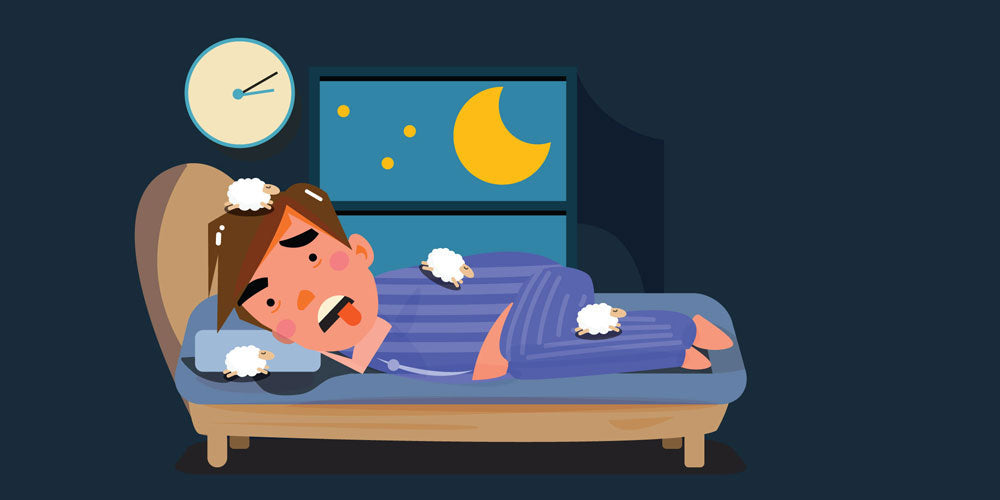Sleep Hygiene, Is It Really a Thing?
Sep 21, 21

The practice of healthy behavioral and environmental sleep habits that can help you achieve a better night's sleep is known as sleep hygiene. Having a decent sleep hygiene routine entails more than just purchasing a comfortable mattress. What you do during the day and late at night might significantly impact your sleep quality.
Regular exercise and avoiding numerous naps during the day are two examples of healthy sleep hygiene. Good sleep hygiene can help you sleep better by improving your overall sleep health and allowing you to sleep more peacefully and soundly. Our guide explains what sleep hygiene is if it helps, and how to incorporate it into your daily routine.
Does Sleep Hygiene Work?
Sleep hygiene has the potential to help you fall and stay asleep more comfortably. Even minor changes to your daily and nighttime routine might have a significant impact on your sleep quality. On the other hand, good sleep hygiene is not a cure-all for sleep problems. It should not be used in place of medical therapy if you have signs of insomnia disorder or certain chronic respiratory disorders.
Those who are considered "normal sleepers" and may encounter minor sleep troubles should practice sleep hygiene at some point in their lives. If you're not sleeping well despite appropriate sleep hygiene, you should consult a sleep healthcare doctor.
What Are the Benefits of Good Sleep Hygiene?
We feel refreshed and renewed when we get enough sleep. Good sleeping habits can improve not only our general health but also our way of living.
Sleep Doctors advise you to keep good sleep hygiene because it increases your chances of getting a better night's sleep, which can help us be more productive, improve our mental and physical health, and improve our overall quality of life. Other advantages include:
- Improved memory
- A stronger immune system
- Muscle healing is enhanced
- Increased levels of energy
The quality of sleep we get each night impacts how we look and feel the next day, which is why maintaining good sleep hygiene is critical.
Ways to Improve Your Sleep Hygiene
Making sure you receive adequate sleep is one of the most critical parts of proper sleep hygiene. Adults should receive at least seven hours of sleep per night on average. If you're having trouble getting seven hours of good sleep, try implementing the following suggestions into your daily and evening routine.
- Exercising Regularly
Getting at least 20–30 minutes of physical activity per day can assist you in falling asleep. Being active can help you fall asleep faster and sleep deeper by reducing the number of times you wake up throughout the night. However, strenuous exercise should be avoided one to two hours before bedtime because it can boost your heart rate, making falling asleep more difficult.
- Avoid naps during the Day
While taking a power nap once in a while can be useful, taking naps longer than 20 minutes numerous times a day can be damaging to your nighttime sleep. Too many late-day naps can make it difficult to fall asleep at regular hours. Longer naps might result in "sleep inertia," which is a feeling of grogginess or disorientation when you wake up. This sensation can persist for two to four hours, making that snooze seem like a bad idea. When you feel your eyelids begin to droop in the afternoon, resist the impulse to nap and instead go for a walk outside or eat a healthy snack.
• Soak up the Morning Sun
It would be best if you exposed yourself to natural light as soon as you woke up. Spending time in the morning sun can help to reset your circadian rhythm and signal to your brain that it's time to wake up. A morning walk outside is a terrific way to wake up and obtain some much-needed energy naturally if you don't have time to go for a walk, open your blinds or turn on your brightest lights.
• Turn off all electronics an hour before bedtime.
Sleep and electronics aren't always a good mix. It's crucial to avoid blue light for at least one hour before going to bed. This type of light has the potential to disrupt your circadian rhythm, and it can also lower your natural melatonin levels, decreasing the quality of your sleep. Make it a family habit to turn off (or silence) all technology before bedtime and relax with a soothing activity like reading or meditation.
• Think of Positive Thoughts
There is nothing more debilitating than sleep deprivation. Many people suffer from the sensation of tossing and turning as a result of nervous thoughts. This type of anxiousness can lead to a never-ending cycle of sleep deprivation. If you have trouble sleeping because of anxiety, try meditating before bed. Meditation has been demonstrated to help people fall and stay asleep more easily while also enhancing sleep quality. If it doesn't work, try calming your thoughts with yoga for sleep.
Conclusion
Everyone can benefit from practicing good sleep habits. The next time you wake up from a poor night's sleep, you should do a detailed overnight test that monitors the body's functioning during your sleep and evaluate your actions the day before.
This is where you'll need us; Morpheus Healthcare is a team of Doctors, Sleep Consultants, Sleep Advisors, and Medical Technicians that will help you in developing and maintaining good sleep hygiene.
Contact us for further details regarding our services.

